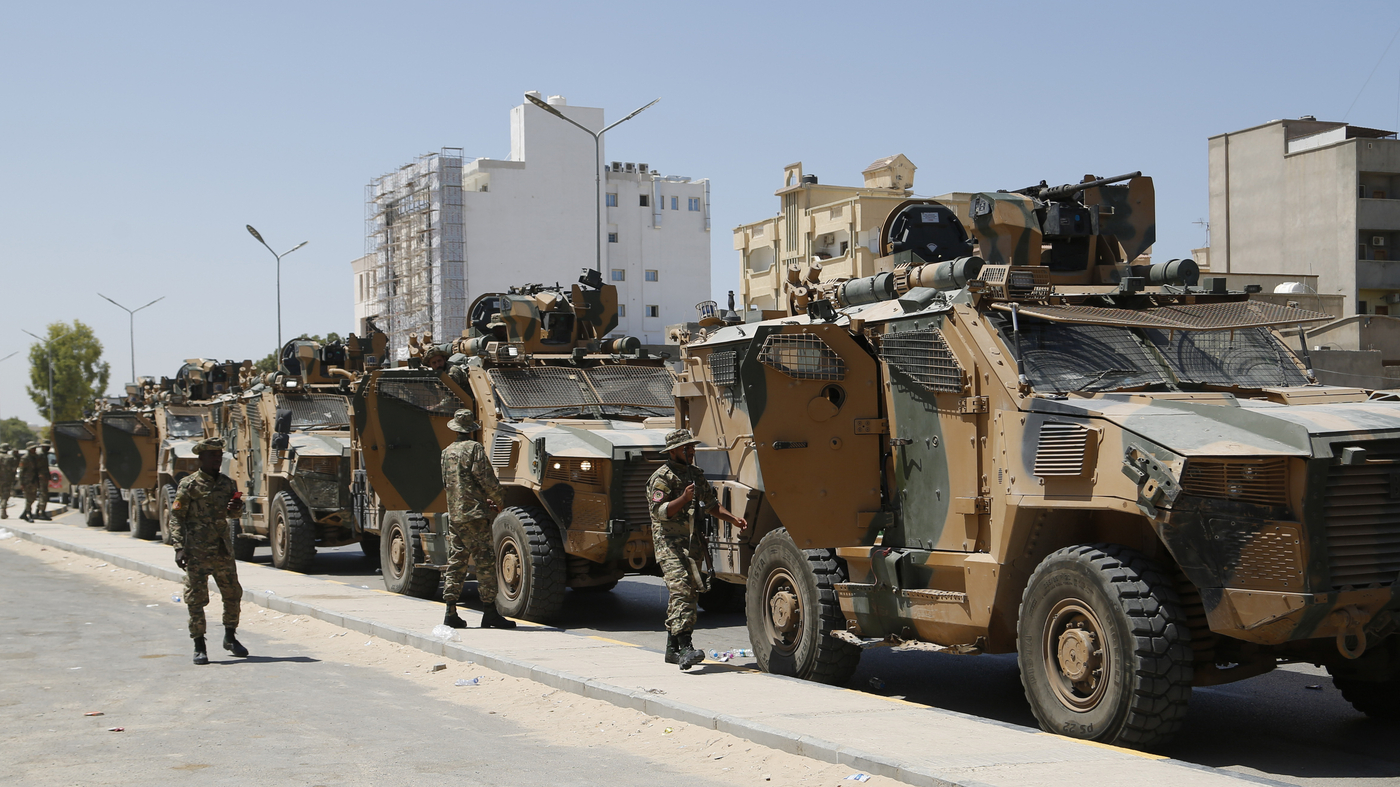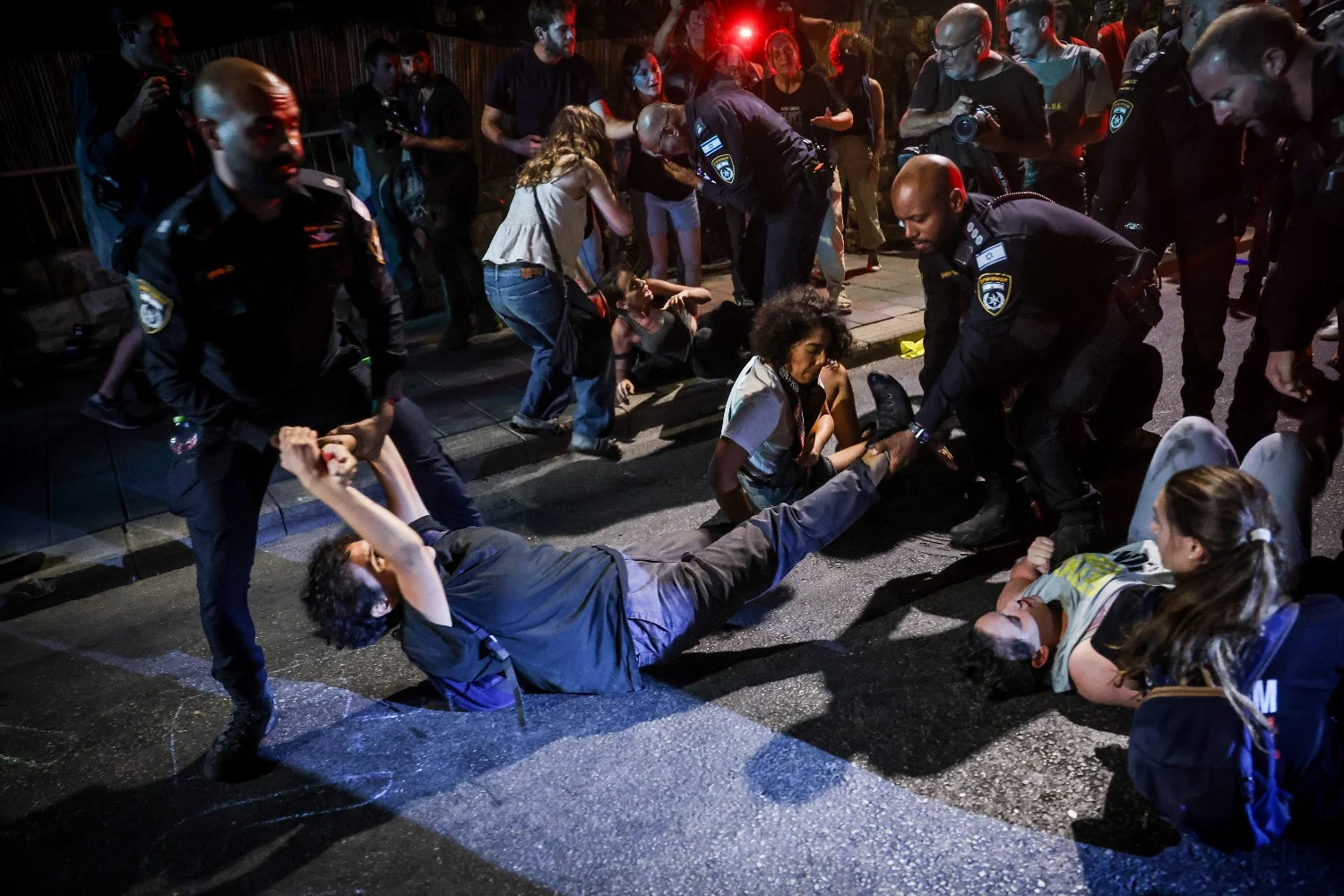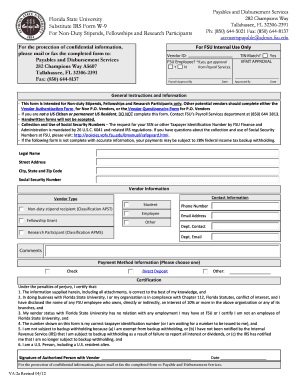Libya's Prime Minister Vows To End Militias Amidst Tripoli Protests And Violence

Table of Contents
The Prime Minister's Vow and Proposed Solutions
In a televised address on [Date], the Prime Minister declared his unwavering commitment to ending the influence of Libya's militias, stating [insert direct quote if available, otherwise paraphrase the statement]. This vow signals a significant shift in government policy, acknowledging the destabilizing effect these armed groups have on the nation.
- Specific Plans: The Prime Minister outlined a multi-pronged approach, including:
- A phased integration of willing militia members into the Libyan National Army, offering them formal roles and salaries.
- An amnesty program for those who surrender their weapons and agree to abide by the law.
- A targeted crackdown on particularly violent or criminal militia groups.
- Timeline: The proposed timeline for disarmament is ambitious, aiming for [mention timeline if specified, otherwise state “significant progress within [timeframe]”].
- International Support: The Prime Minister has appealed to the international community for technical assistance, logistical support, and potentially financial aid to facilitate the disarmament process. [Mention specific countries or organizations if known].
- Resource Allocation: The government has pledged [mention amount or percentage of budget if available] to fund the disarmament program, covering everything from salary payments to weapon disposal and rehabilitation programs for former militia fighters.
Tripoli Protests and the Underlying Causes
The protests in Tripoli, which began on [Start Date], represent widespread frustration with the ongoing insecurity and lack of accountability within the country. The demonstrations, involving [mention estimated size or scale], were triggered by [mention specific event or incident].
- Key Grievances: Protesters' demands centered around:
- Increased security and a reduction in militia-related violence.
- Improved economic conditions and job creation.
- Greater political stability and an end to corruption.
- Accountability for past human rights abuses linked to militia activity.
- Link to Militias: The protests directly highlight the influence and power of Libya's militias, with many blaming them for ongoing insecurity, extortion, and the obstruction of government services.
- Significant Incidents: [Mention any notable clashes, casualties, or injuries during the protests].
- Specific Demands: Many protesters explicitly called for the disarmament of militias, an end to their impunity, and the integration of responsible fighters into legitimate security forces.
The Influence and Power of Libya's Militias
Libya's militias are a complex and deeply rooted problem, their origins tracing back to the 2011 revolution. They hold significant power and influence in various sectors of Libyan society.
- Factions and Control: Various militia factions operate throughout Libya, each controlling different territories and wielding different levels of influence. [Mention prominent examples if possible].
- Sector Involvement: Militias are involved in:
- Politics: influencing elections and political processes.
- Economy: controlling key resources and infrastructure, often through extortion and racketeering.
- Security: acting as de facto security forces in certain regions, often competing with or undermining official security agencies.
- Challenges to Disarmament: Disarming these groups poses significant challenges, including:
- Strong internal loyalty and the lack of a unified command structure.
- Complex funding mechanisms and access to significant weaponry.
- Mistrust of the government and fear of retribution for past actions.
Challenges and Obstacles to Disarming Militias
The Prime Minister's initiative faces numerous hurdles, and success is far from guaranteed.
- Political Opposition: Resistance is likely from militia leaders and their political allies who benefit from the current status quo.
- Logistical Complexities: The sheer logistical task of disarming, demobilizing, and reintegrating thousands of militia fighters is immense, requiring extensive planning and coordination.
- Risk of Further Violence: The disarmament process itself carries the risk of increased violence and instability as various militia factions may resist government efforts.
- Regional and International Actors: The involvement of regional and international actors, some of whom may have their own agendas and alliances with certain militia groups, could further complicate the situation.
International Community Response and Future Outlook
The international community is closely monitoring the situation in Libya.
- Statements from Key Players: [Mention statements from the UN, EU, US, etc., highlighting their support or concerns].
- Potential for Sanctions: The imposition of targeted sanctions against recalcitrant militia leaders is a possibility.
- Predictions for Success: The success of the Prime Minister's initiative hinges on several factors, including the level of international support, the willingness of militia leaders to cooperate, and the government’s ability to provide credible alternatives.
- Long-Term Implications: The outcome will significantly affect Libya's long-term stability and security, impacting its prospects for economic development and political reconciliation.
Conclusion
The Prime Minister's vow to end the influence of Libya's militias is a bold step, but one fraught with significant challenges. The Tripoli protests highlight the urgent need for security sector reform and an end to the impunity enjoyed by these armed groups. The success or failure of this initiative will have profound implications for Libya's future. The future of stability in Libya hangs in the balance. Continued monitoring of the situation and sustained international pressure are crucial to ensure that the commitment to ending the threat posed by Libya's militias is achieved. Stay informed about developments concerning Libya's militias and the ongoing struggle for peace.

Featured Posts
-
 The Juan Soto Situation A Realistic Look At His Mets Debut
May 19, 2025
The Juan Soto Situation A Realistic Look At His Mets Debut
May 19, 2025 -
 Vstrecha V Zheneve Gensek Oon Obsudit Kiprskiy Vopros
May 19, 2025
Vstrecha V Zheneve Gensek Oon Obsudit Kiprskiy Vopros
May 19, 2025 -
 Major Plot Twist Teased For Final Destination Bloodline
May 19, 2025
Major Plot Twist Teased For Final Destination Bloodline
May 19, 2025 -
 The Life And Legacy Of A Fallen Fsu Employee A Familys Story
May 19, 2025
The Life And Legacy Of A Fallen Fsu Employee A Familys Story
May 19, 2025 -
 Todays Nyt Connections Hints And Answers April 29 Puzzle 688
May 19, 2025
Todays Nyt Connections Hints And Answers April 29 Puzzle 688
May 19, 2025
